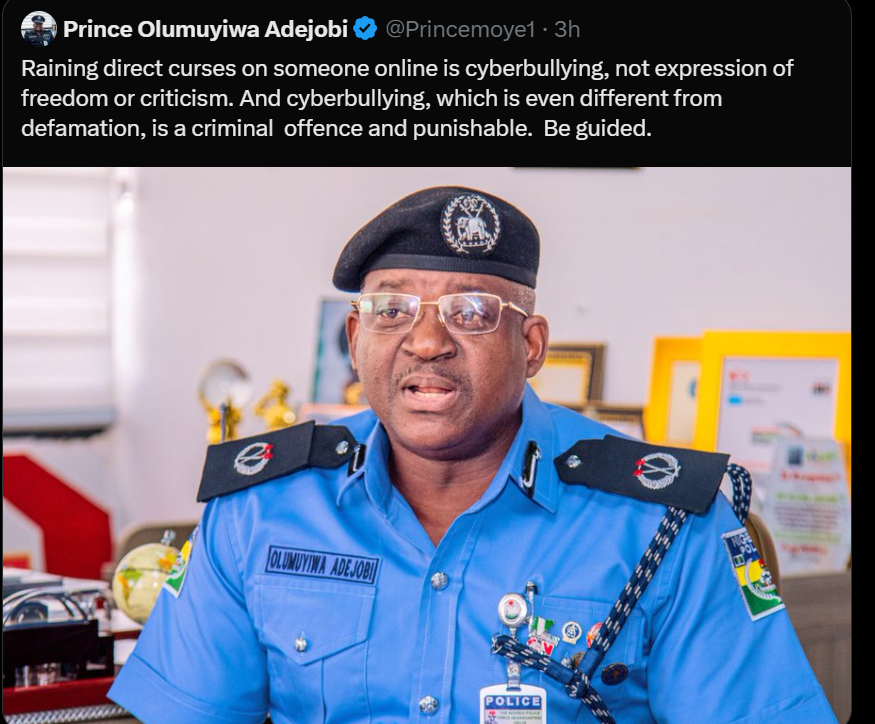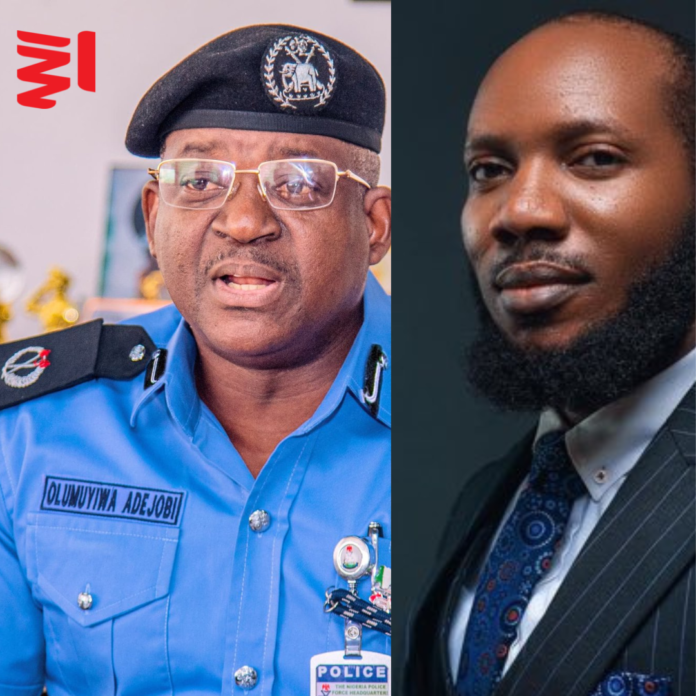A heated exchange has taken social media by storm as Prince Olumuyiwa Adejobi, the Force Public Relations Officer (FPRO) of the Nigerian Police, and activist lawyer Inibehe Effiong clashed over the legality of online curses. The debate began when Adejobi took to Twitter, declaring that “raining direct curses on someone online is cyberbullying, not expression of freedom or criticism” and described it as a criminal offense punishable under the law.
Inibehe Effiong, a prominent legal practitioner and human rights advocate, wasted no time in responding, describing the FPRO’s statement as “ignorance of the law raised to power 1000.” Effiong argued that cursing someone online is neither a crime nor an infringement punishable under Nigerian law.
Effiong quoted Section 36 (12) of the Nigerian Constitution to support his stance, asserting that for any act to be criminalized, it must be explicitly defined in a written law. He further challenged the FPRO to cite any legal provision backing his claim.
“The fact that this very ridiculous opinion is from the spokesperson of the primary law enforcement agency in Nigeria says a lot about the decadence of our institutions,” Effiong wrote in his scathing response.

The lawyer also highlighted that curses, often rooted in superstition or spiritual beliefs, hold no legal weight. “For example, telling someone ‘it shall not be well with you’ is a prayer; prayer can be positive or negative,” he remarked, adding that the law does not concern itself with “trifling things or spiritual matters.”
Effiong’s criticism extended to the Cybercrimes Act, which he noted had been amended, making the police’s reliance on repealed provisions for prosecuting critics outdated and irrelevant.
This fiery debate has sparked mixed reactions online, with some Nigerians siding with Effiong, emphasizing the importance of upholding constitutional rights, while others back Adejobi, arguing for stricter control over harmful speech on social media.
As the controversy grows, the conversation raises questions about freedom of expression, the role of law enforcement in online discourse, and the boundaries of personal accountability in the digital age.
What do you think? Are online curses a matter of free speech or criminal behavior? Join the conversation!



